AI transforming Vietnam’s businesses for the better
Google, in collaboration with the Vietnam National Innovation Centre (NIC), last week launched a comprehensive initiative designed to accelerate Vietnam’s advancement in AI.
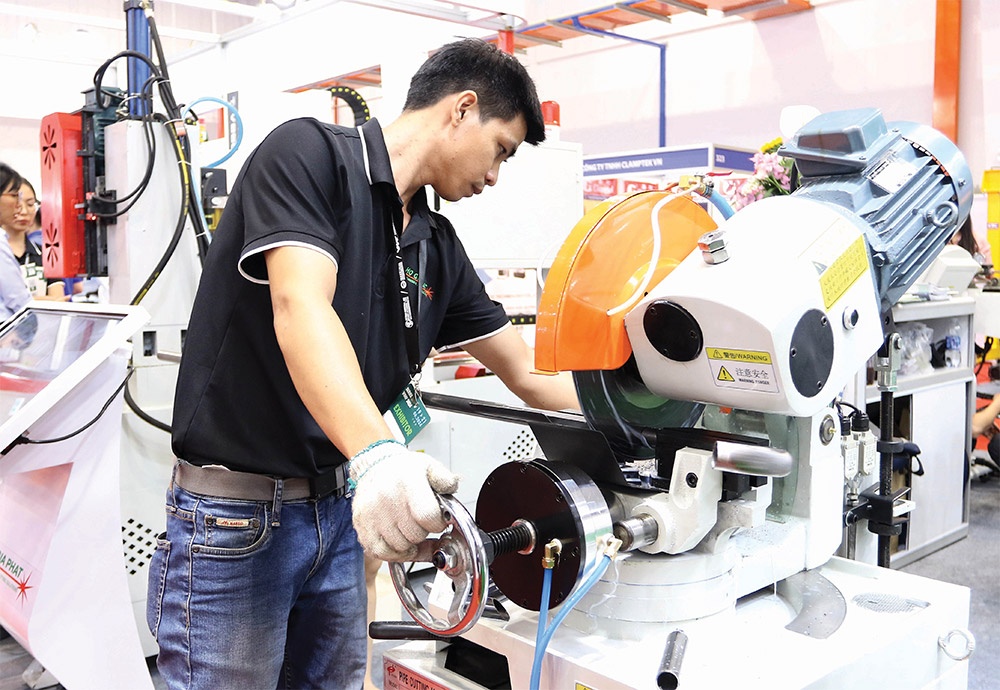 |
| Telecoms groups, healthcare firms, transport companies, and more are utilising AI to boost quality and accuracy in various ways |
This initiative, called Build For The AI Future, focuses on two key pillars (see box) which address critical areas to empower Vietnam’s human capital, nurture its burgeoning startup ecosystem, and strengthen the foundation for maximising AI adoption.
The collaboration marks a significant new chapter in Google’s longstanding commitment to supporting Vietnam’s digital transformation, and directly aligns with Vietnam’s National AI Strategy to 2030.
Tran Duy Dong, Deputy Minister of Planning and Investment, said, “This programme underscores the unwavering commitment of the ministry and Google to fostering Vietnam’s AI ecosystem. It aims to equip the local workforce with essential skills to seize the opportunities of the AI era, while simultaneously supporting the development of AI-powered innovations among Vietnamese startups.”
Marc Woo, managing director for Vietnam at Google Asia-Pacific, said, “Vietnam’s digital economy is forecast to grow by an astonishing 11-fold by 2030, reaching a staggering $220 billion – nearly half of Vietnam’s current GDP. And AI is one of the key drivers to materialise that forecast. Together with the NIC, we believe Build For The AI Future will be a strong launchpad for Vietnam local talents, startups, and businesses that are well-leveraged on the best of Google AI’s products and solutions.”
The Southeast Asian digital economy has undergone a meteoric rise, surging 8-fold in just eight years to reach $100 billion. This rapid digital transformation, combined with the region’s AI readiness, positions Southeast Asia, including Vietnam, to reach up to $835 billion of economic benefits from AI by 2030.
Key challenges
Despite the promising landscape of Vietnam’s economic growth driven by AI, a critical challenge persists: a shortage of AI specialists. According to various statistical sources, currently there are around 1,600 Vietnamese officials currently researching and working in AI-related fields. Of these, there are only about 700 people doing this job in Vietnam. However, only around 300 of these are classed as experts.
This scarcity, coupled with insufficient access to high-quality AI training programmes, widens the current gap between the market’s demand and the available talent.
Beyond the talent shortage, Vietnamese AI startups face additional challenges such as limited access to leading AI experts and mentors to review and validate products for strong market-fit; and a lack of access to enterprise-ready infrastructure and tools that are needed for rapidly developing, commercialising, and scaling their own products.
Talking about the application of AI in investment and business operations, Lan Pham, co-founder and COO at stock tracking support company Simplize, said she used to struggle with users’ low trust in the platform. Customers had doubts about the reliability and effectiveness of recommendations made by AI along with pressure from rising costs of training AI models, and the business was in jeopardy.
“We learned about Google for Startup Accelerator, and realised the outstanding values and opportunity that we cannot ignore. A personalised approach to each startup, and the programme’s diverse team of expert advisors, were exactly what we needed,” Pham said.
Simplize uses Google Vertex AI to optimise the costs of training its AI models. “Gaining valuable market insights and improving a perfect product have increased Simplize’s users base 10 times over. Moreover, Simplize’s solution outperformed the VNIndex 30 times over with a profit of 210 per cent in the last three years, even during the market downtrend,” Pham stated.
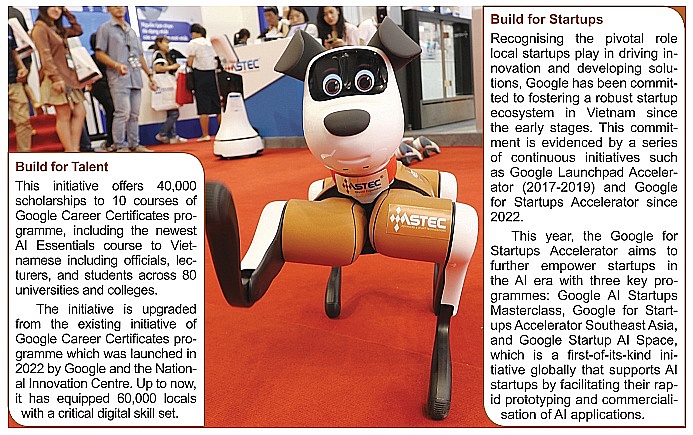 |
Transforming landscape
In fact, AI is already helping to transform Vietnam for the better. Specifically, Viettel developed an AI-enabled legal virtual assistant to help automate aspects of the legal and judicial process. Novas EZ Co., a South Korean electronic manufacturing service company, leverages AI to make its Vietnamese factory’s production more efficient.
AI integration into Vietnam’s electric vehicle sector enables advancements in areas such as EV design, the driver experience, and battery production. The International Rice Research Institute uses AI to develop climate-resilient rice varieties that will better equip Vietnamese farmers to cope with climate change.
Elsewhere, the Vingroup Big Data Institute has developed VinDr, an AI-enabled application that helps medical practitioners to accurately diagnose and detect diseases. FPT University is conducting training programmes to help Vietnamese teachers use AI to improve the quality of education.
The International Road Assessment Programme uses AI to keep children safe on the roads in Vietnam. Google’s AI-enabled flood-forecasting platform, Flood Hub, helps Vietnam’s agricultural hubs forecast floods. The Coffee Vision project uses AI to accurately identify deforestation in Vietnam’s coffee production sites to improve biodiversity.
“To complement existing efforts, we propose three key recommendations for Vietnam to ensure that Vietnam can harness AI safely,” Woo of Google Asia-Pacific said. “Vietnam should invest more in infrastructure and innovation, AI research and development, digital infrastructure, and provide a supportive policy environment that lowers barriers to AI innovation.”
An AI-ready workforce is essential to ensure the benefit from AI, from students to workers, and from small businesses to large conglomerates. It is also necessary to promote inclusive adoption and accessibility, harnessing AI across the government and all sectors of the economy to address major societal and economic challenges and ensure the benefits of AI are widely shared, Woo added.
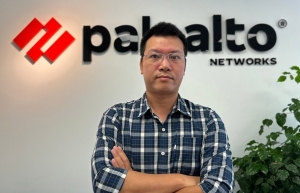 | AI-powered solutions to be adequate response to threats Toying around with the latest generative AI tools has been entertaining for many. Yet, AI has long transcended personal use, profoundly reshaping organisational and business activities. |
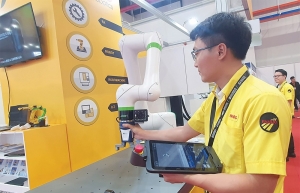 | Time is now for Vietnam to fully cultivate AI talent Vietnam is well-positioned to fully develop AI talent through government support, international collaboration, and an influx of foreign experts. |
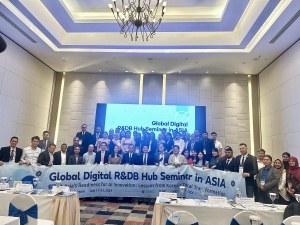 | Asia’s readiness for AI innovation: Lessons from South Korea’s digital transformation A landmark event to foster collaboration in AI research and development business across Asia by bringing together leading experts, scholars, government officials, and innovative communitie was held on July 11-12 in Hanoi. |
 | Leveraging the power of artificial intelligence in telecoms A lot is being said about AI and how it is impacting human life, as it is being leveraged in telecoms and radically transforming how mobile networks are being managed and deployed. |
What the stars mean:
★ Poor ★ ★ Promising ★★★ Good ★★★★ Very good ★★★★★ Exceptional
Related Contents
Latest News
More News
- A golden time to shine within ASEAN (February 19, 2026 | 20:22)
- Vietnam’s pivotal year for advancing sustainability (February 19, 2026 | 08:44)
- Strengthening the core role of industry and trade (February 19, 2026 | 08:35)
- Future orientations for healthcare improvements (February 19, 2026 | 08:29)
- Infrastructure orientations suitable for a new chapter (February 19, 2026 | 08:15)
- Innovation breakthroughs that can elevate the nation (February 19, 2026 | 08:08)
- ABB Robotics hosts SOMA Value Provider Conference in Vietnam (February 19, 2026 | 08:00)
- Entire financial sector steps firmly into a new spring (February 17, 2026 | 13:40)
- Digital security fundamental for better and faster decision-making (February 13, 2026 | 10:50)
- Aircraft makers urge out-the-box thinking (February 13, 2026 | 10:39)

 Tag:
Tag:
















 Mobile Version
Mobile Version